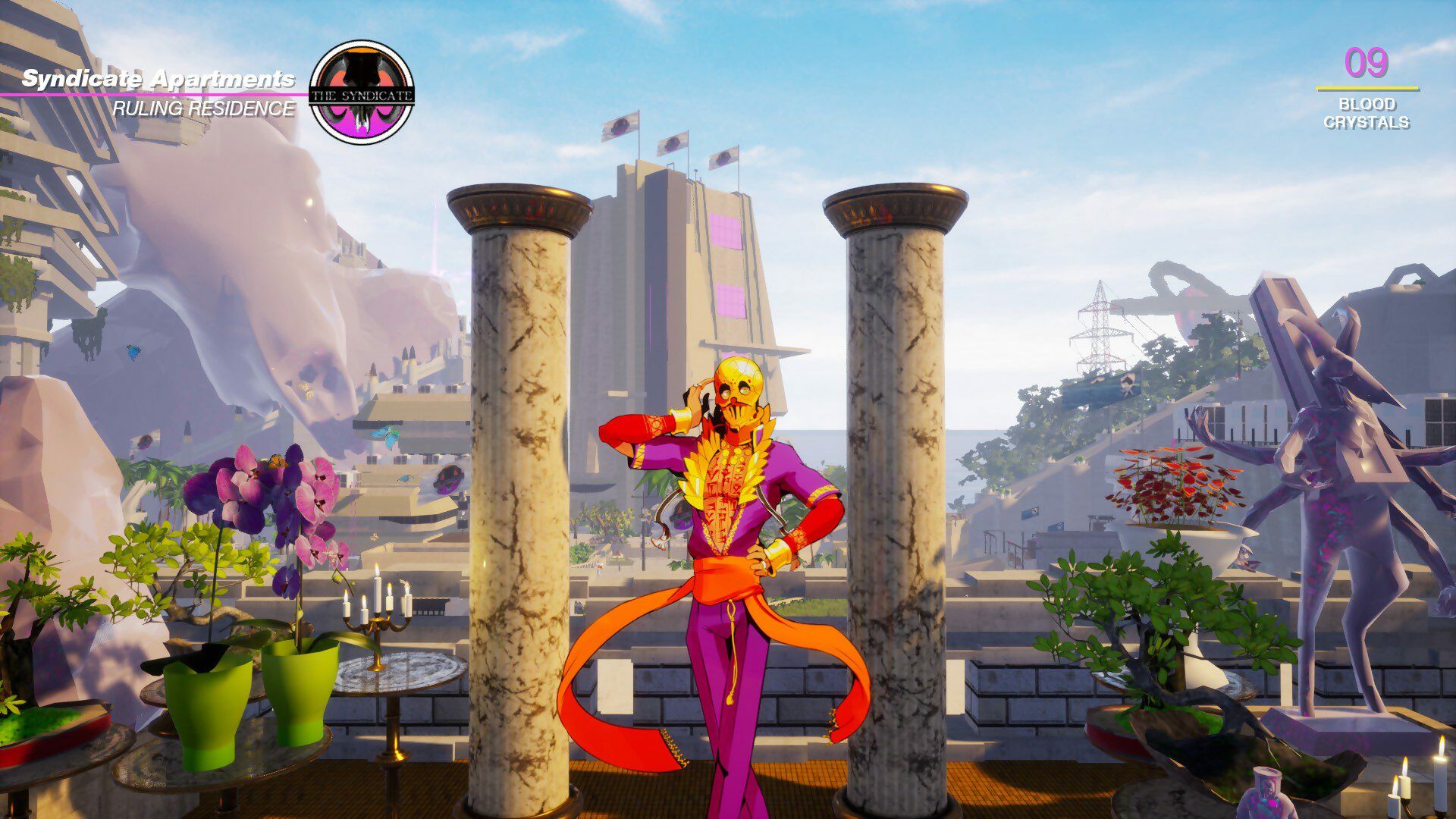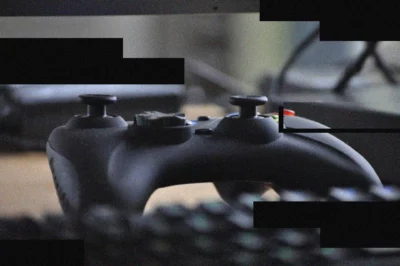
There’s a key problem in detective games, particularly ones which feature courtroom-style play and require the player to build a case. It’s this: the plot requires a certain outcome. This is perhaps most easily highlighted in Phoenix Wright, where the player’s required to input the correct evidence or argument at the correct time in order to crack the case. Failure would contradict the game’s plot, so the player must simply fail and repeat the trial until they determine the ‘correct’ course of actions. A simple problem? Well, there’s a reason that Phoenix Wright and so many other deductive games have this restriction: branching the plot to encompass different outcomes for each trial while still hitting the same emotional highs and lows would be a ridiculous amount of work.
Kaizen Game Works’ Paradise Killer fixes this. By including only a single, momentous trial at the end of the game, it no longer needs a specific outcome, since there’s very little post-trial content to branch. The game is utterly open: you can convict everyone or no one, get it blindingly wrong or completely right. There is no failure, but you know it would suck to finish the trial, completely whiff it, and be forevermore disappointed with yourself for not being prepared enough. These are significantly higher stakes in my opinion than a ‘Return to Checkpoint?’ prompt and the threat of having to repeat 20 minutes’ worth of content, adding far more drama and finality to the player’s choices.

Topic selection is clunky and dissonant, often leading to another menu of only one choice. This problem was solved in The Red Strings Club, examined in issue #47.
Contradictions
Before the trial, the majority of the game focuses on pure investigation. This means a lot of traversal, finding clues, then going back and forth between roughly ten characters asking them what they have to say in response. They will give you a little bit of testimony each time you confront them with something new, which you can then also bring up with the relevant characters who will either corroborate or contradict it.
Occasionally a single physical clue will lead to several layers of confession and counter-testimony, with discrepancies reaching a brick wall at which characters bull-headedly stick to their story and simply insist the others are lying. This is one of the best things about Paradise Killer, since it means that there are multiple possible truths for you to believe, and for most of the game real, hard thought must be put into deducing which is the most likely.
In fact, it becomes apparent over time that there were at least two separate plots to commit most of the crimes you are investigating, meaning that you’re assessing not only who planned to do what, where, and why, but also who actually succeeded.
Pointing the finger
Then, at trial, the game hits you with its design decision. Despite multiple conspiracies, and often a crime such as ‘Who trespassed in X location?’ having been committed more than once separately by different individuals, you can accuse just one person of each crime. Let’s say you can exclusively accuse character Y or Z of trespassing in X location, but you know they both did it. This decision then becomes about two things: which of their cases is most provable, and who deserves justice more?
This question of justice is the most interesting part of the trial process. Did Y have more malicious intent behind their crime than Z? Did Z commit the crime more deceptively, or with more premeditation than Y? Does Y deserve the blame more, but is already convicted of a previous crime, so you should accuse Z to balance the scales? In my own playthrough, I made a number of crucial and complex decisions at trial, which included both A) falsely pinning crimes on someone already sentenced to death so that sympathetic characters (who I knew and could prove were guilty) could get away with reasonably justified non-violent crimes, and B) never bothering to accuse several guilty characters since they were already deceased, so accusing others on shakier evidence of attempting the same crime (just because they had it coming). The game clearly enabled juicy, high-level moral decision-making!

Paradise Killer keeps the player doubting themselves by being so relentlessly bizarre that pretty much anything could contradict their entire case at any time.
Excess clarity
As good as the trial was, the game has an Achilles heel: if you explore long and thoroughly enough, you find the smoking guns. Irrefutable, concrete evidence of pretty much exactly who killed who. There are still multiple plots and guilty parties, but much of the hard deduction you do earlier in the game is rendered useless when you see clear as day who did what successfully, where, and when. It takes the wind from under the attentive player’s wings, and while there’s a defensible desire to provide a backup for players who really couldn’t figure it out alone, given that the game doesn’t actually have a fail state, Paradise Killer could allow you to go into the trial still a little unsure of the theories you’d built and your ability to convince the judge of them. Doing so would have kept the courtroom tension high, instead of lowering the stakes at the last minute by allowing you to enter the trial essentially assured of your success.
So, what has Paradise Killer taught us? Centrally, it’s that prepping evidence for and then playing out a courtroom scene is most luscious when the trial’s outcome is not a foregone conclusion. On one hand, Paradise Killer solves this by having no scripted or ‘true’ ending, and Kaizen pulls it off by only having a single trial in the story. On the other hand, its penultimate moments give the player overpowering evidence, bringing the resolution back into foregone territory. Moral of the story? Maintain a healthy nibble of player uncertainty at all times.

Paradise Killer has no qualms about telling you exactly what it’s trying to achieve. Subtle, it is not.
A familiar problem
Once you’ve accused someone, the prosecution process is executed the same way that questioning characters is earlier in the game, by breaking up the content into short conversations arranged by topic, selectable in any order. It feels rote and clunky, although the juiciness of the plot generally covers for it. The game itself seemingly acknowledges this problem when it comes to presenting evidence of conspiracies, which you’re asked to do after you’ve finished prosecuting individual crimes, as the protagonist simply rattles through everything she knows on the subjects without player input.





